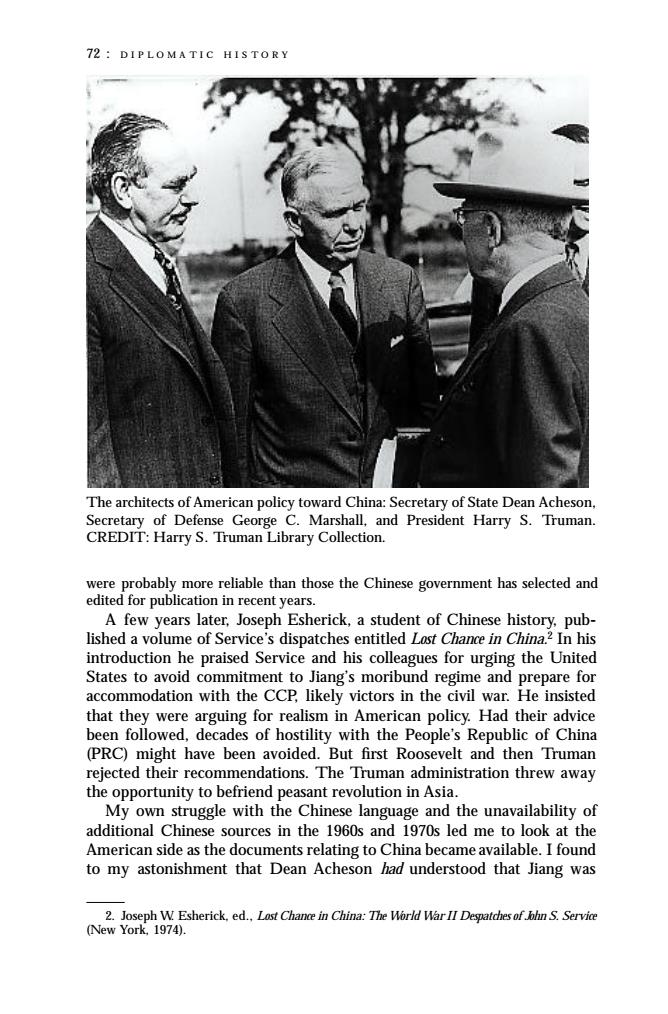正在加载图片...

72:DIPLOMATIC HISTORY The architects of American policy toward China:Secretary of State Dean Acheson, Secretary of Defense George C.Marshall,and President Harry S.Truman. CREDIT:Harry S.Truman Library Collection. were probably more reliable than those the Chinese government has selected and edited for publication in recent years. A few years later,Joseph Esherick,a student of Chinese history,pub- lished a volume of Service's dispatches entitled Lost Chance in China.2 In his introduction he praised Service and his colleagues for urging the United States to avoid commitment to Jiang's moribund regime and prepare for accommodation with the CCP,likely victors in the civil war.He insisted that they were arguing for realism in American policy.Had their advice been followed,decades of hostility with the People's Republic of China (PRC)might have been avoided.But first Roosevelt and then Truman rejected their recommendations.The Truman administration threw away the opportunity to befriend peasant revolution in Asia. My own struggle with the Chinese language and the unavailability of additional Chinese sources in the 1960s and 1970s led me to look at the American side as the documents relating to China became available.I found to my astonishment that Dean Acheson had understood that Jiang was 2.Joseph W.Esherick,ed.,Lost Chance in China:The World War II Despatches of .bhn S.Service (New York,1974).72 : D I P L O M A T I C H I S T O R Y The architects of American policy toward China: Secretary of State Dean Acheson, Secretary of Defense George C. Marshall, and President Harry S. Truman. CREDIT: Harry S. Truman Library Collection. were probably more reliable than those the Chinese government has selected and edited for publication in recent years. A few years later, Joseph Esherick, a student of Chinese history, published a volume of Service’s dispatches entitled Lost Chance in China.2 In his introduction he praised Service and his colleagues for urging the United States to avoid commitment to Jiang’s moribund regime and prepare for accommodation with the CCP, likely victors in the civil war. He insisted that they were arguing for realism in American policy. Had their advice been followed, decades of hostility with the People’s Republic of China (PRC) might have been avoided. But first Roosevelt and then Truman rejected their recommendations. The Truman administration threw away the opportunity to befriend peasant revolution in Asia. My own struggle with the Chinese language and the unavailability of additional Chinese sources in the 1960s and 1970s led me to look at the American side as the documents relating to China became available. I found to my astonishment that Dean Acheson had understood that Jiang was 2. Joseph W. Esherick, ed., Lost Chance in China: The World War II Despatches of John S. Service (New York, 1974)